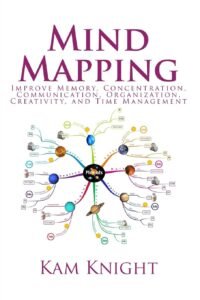In today’s fast-paced world, Effective Communication is key to success. Whether you’re part of a bustling office or working from home, the ability to express your ideas clearly and concisely is vital.
However, it can be challenging to create Effective Communication when your thoughts are scattered and disorganized.
However, they don’t have to be! Let’s look at 4 tools that can help you organize your thoughts and enhance your workplace performance.
Everyone has their own way and style of bringing order to their lives. What works for one person, may not work for another. When it comes to organizing your thoughts there isn’t just one way either!
Let’s get into our 4 ways to organize your thoughts and boost Effective Communication at work.
Try Mind Mapping
Mind mapping is a powerful technique that allows you to create a visual representation of your thoughts. This method not only helps you organize your thoughts but also allows you to see the connections between different elements. Start with a central idea or topic in the middle of a blank page, and then branch out with related ideas, concepts and details. You can even order The Ultimate Mind Mapping Notebook to get you started!
If you’re juggling various tasks, mind mapping can be a game-changer. Whether you’re brainstorming a project with your team or preparing a presentation, this visual roadmap provides clarity and structure. There are numerous digital mind-mapping tools available that make it easy to create and edit your maps, keeping your office communication efficient and well-structured. Do you want to explore mind mapping in more detail? Order the book, Mind Mapping: Improve Memory, Concentration, Communication, Organization, Creativity, and Time Management, to dive deeper and get access to 50 mind map images, illustrations, and diagrams.
Utilize a Digital Workspace
In today’s digital age, our workspaces extend beyond physical offices. Managing digital clutter is essential for those who rely on technology for communication and collaboration. Start by organizing your digital files, emails and documents into well-labeled folders. This approach ensures that you can quickly locate important information when needed.You might also want to consider using project management tools such as Trello or Asana to keep track of tasks and deadlines. These platforms allow you to break down projects into manageable steps and assign responsibilities, improving team communication and productivity.
Embrace the Power of Lists
Lists can be your best friend, and they’re equally valuable if you’re looking to organize your thoughts at work or at home. Whether you use a digital planner, a notepad or simply a piece of paper, creating daily to-do lists, prioritizing tasks and checking them off as you complete them not only keeps you on track but also provides a sense of accomplishment.
So that you don’t get overwhelmed by your list-making, be sure to limit the number of tasks you include on your list, break large tasks into smaller, more manageable ones, include deadlines for each, and reward yourself for what you’re able to achieve. If you have lingering tasks that never seem to get done, consider delegating or deleting them so they aren’t clogging up your list or your mind.
Clear Your Physical Space
A cluttered physical workspace can lead to a cluttered mind. If you work in a compact environment, it’s crucial to keep your office area organized. Start by decluttering your desk. Remove unnecessary items, organize your supplies and invest in storage solutions like shelves, drawers and filing cabinets.
Once you’ve decluttered your physical space, you’ll find it easier to concentrate and communicate effectively. To maintain this order, set aside time each day to return items to their proper homes and declutter on a regular basis. While it may not seem like a big deal, an organized space can improve your mental clarity and focus.
Effective communication at work begins with organized thoughts. By implementing these strategies, you can ensure that your office communication is not only clear and concise but also efficient and impactful. Start organizing your thoughts today, and watch your professional life thrive in the organized environment you create.
Don’t miss our Youtube Video How 2 Run An Effective Meeting!
How could organizing your thoughts impact your work?
Tell us which of these tips you will consider implementing for better clarity and focus?









